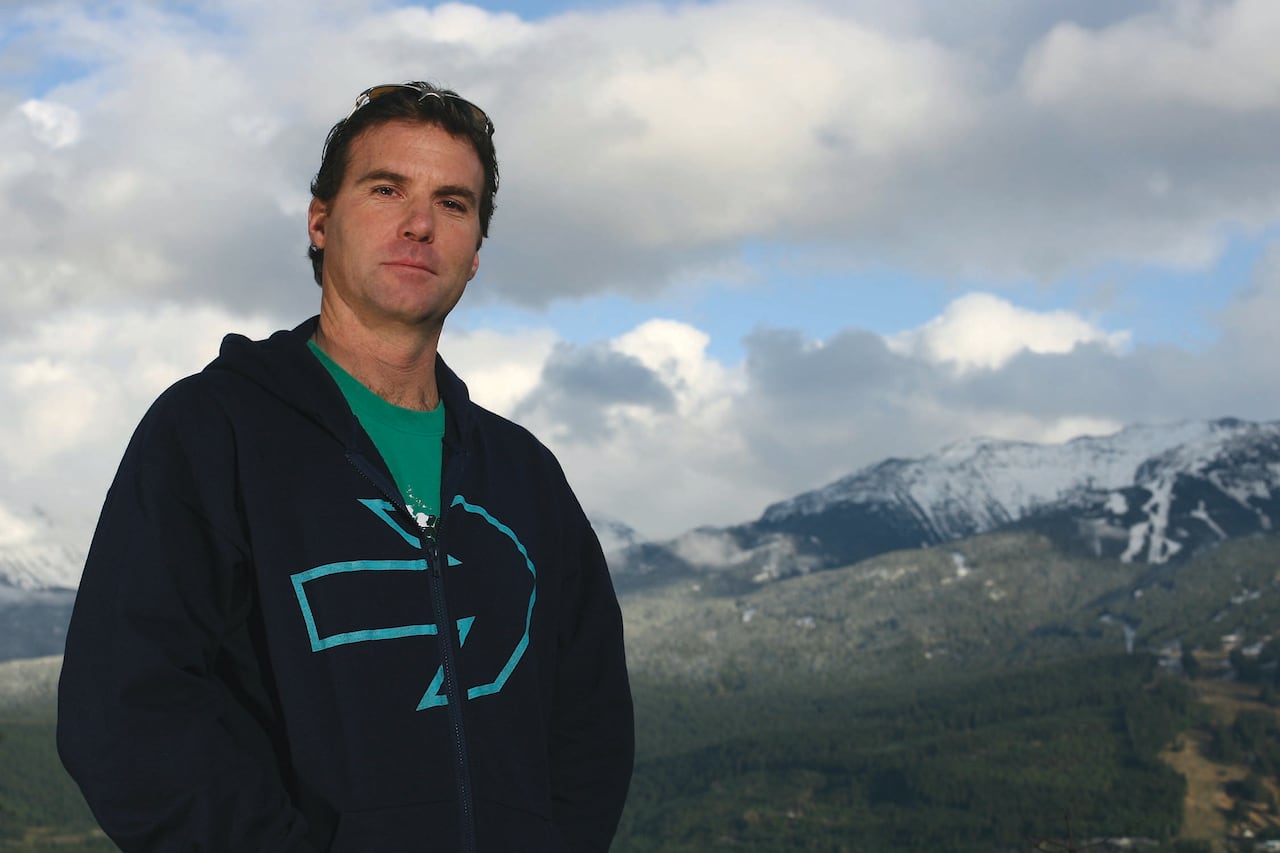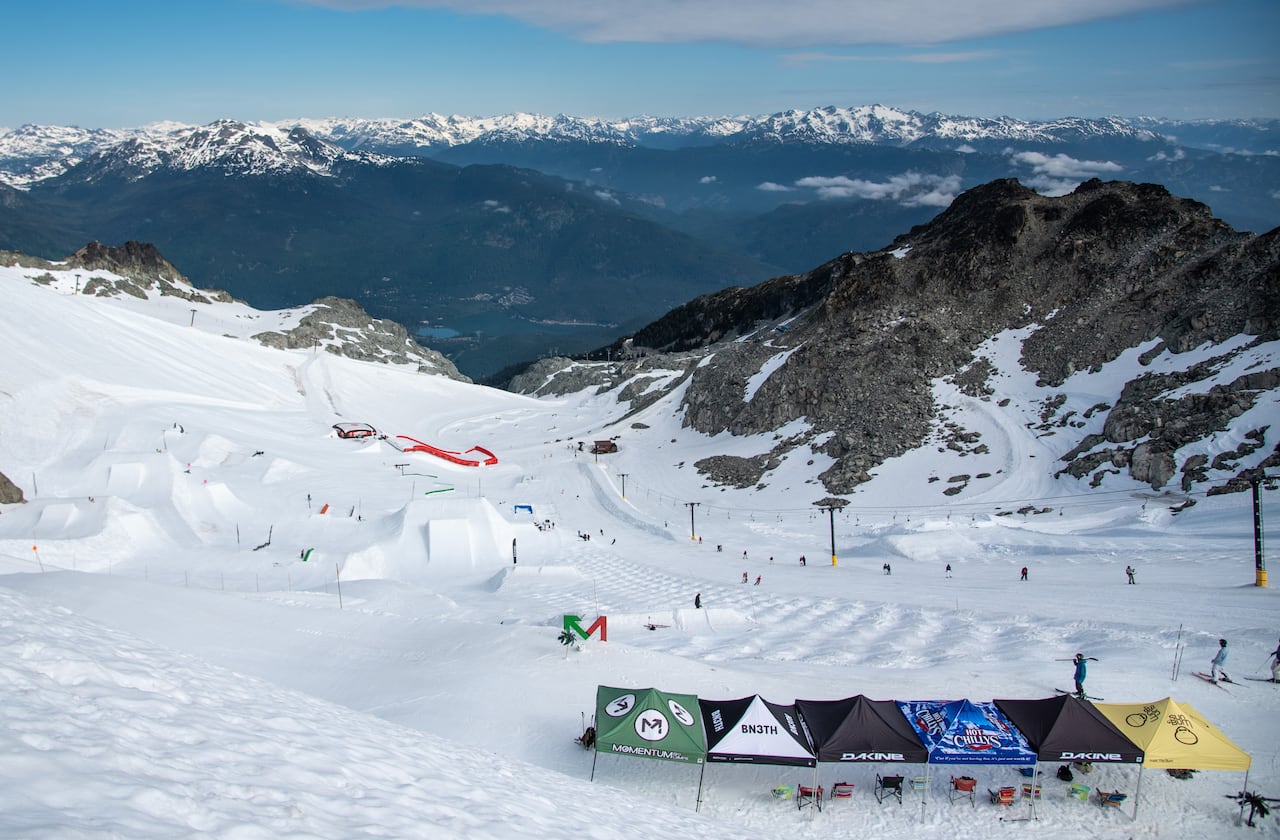This is the first in a two-part series examining how climate change threatens the future of winter sports. On Thursday, you can read about athletes' call to action and what decision-makers in Canada and beyond are doing to address the issue.
For more than two decades, young skiers and snowboarders have spent their summers on the Horstman Glacier in Whistler Blackcomb, training on the snow with some of Canada's best athletes.
At Momentum camps, Olympic dreams were born and a lifelong love of sports blossomed. A young mogul skier could learn to rope from Mikael Kingsbury, the man known as the King of the Moguls.
The list of former campers who have reached the highest level of their sport is long, from Alex Bilodeau, a two-time Olympic mogul champion, to snowboarder Cassie Sharp, winner of both Olympic gold and silver, to Jennifer Hale, an Olympic gold medalist who will serve as Canada's chief of mission at the upcoming Winter Olympics in Italy, to name just a few.
According to John Smart, a two-time Olympian and 13-time Freestyle World Cup medalist who created Momentum Camps after returning from the 1992 Olympics, the goal was not to create champions, but to introduce kids to mentors who model healthy lifestyles.
“There [are] so many thousands of kids have gone through the program and truly become superstars and achievers,” Smart said.
But due to the rapid melting of the glacier, summer skiing and snowboarding on the Horstman Glacier disappeared in the summer of 2024, when the mountain resort deemed it unsafe to operate during the warmer months. Gone are those camps that mixed eager kids with elite athletes.
In addition, some top athletes had no place to train in Canada during the summer. They often have to look to Europe instead, a shift that has cost more money and ruined athletes' lives.
The end of summer skiing is a stark reminder of the existential threat looming over winter sports: The world is warming, and fast.
“You can't help but think about it every day, especially in the context of what we're talking about when a major training center was hit,” said Peter Judge, CEO of Freestyle Ski Canada.
A 2024 study commissioned by the International Olympic Committee found that the number of good-weather venues for the Winter Olympics and Paralympics was rapidly declining. It found that only half of the 21 cities that previously hosted the Olympics will be ready to host them by the 2050s due to a warming planet.
It's a reality that the world of skiing and snowboarding is already seeing up close: more and more competitions are being canceled or shortened for the safety of athletes.
“Increasingly, we're seeing that the reliability of early-season events is very weak,” Judge said. “It used to be that there was never a question about whether the December events would happen, but now every year there is a question about whether they will happen.”
The larger problem of a warming planet is not one that the ski and snowboard world can solve alone.
This is the theme of the meetings of world leaders and negotiators at the UN climate conference COP30, which is currently taking place in Brazil.
With the Horstman Glacier, Smart believes he has found a way to bring back skiing in the summer. But there are more than two years left before this problem is resolved. It won't be cheap either, but he thinks it'll be worth it.
“The new masses are what we'll lose the most if this goes away and doesn't come back,” Smart said.
Safety pushes summer skiing to end
The glacier's summer camps were discontinued after a “careful assessment of conditions at the Horstman Glacier and the Showcase T-Bar area” determined they could no longer be safely operated.
“This decision was based on the condition of the glacier and the impacts caused by melting glaciers,” said Dane Gergovich, a spokesman for Vail Resorts. — American company that acquired Whistler Blackcomb in 2016. — the statement says. The company declined an interview request.
“Snow cover on the Horstmann Glacier, which is affected by glacier melt and the lack of annual snowfall, is a major factor — this restricts the terrain, causes rockfalls, makes safe access for patrols difficult and makes it impossible for us to safely manage lift access to the area during the summer season.”
Gergovich said the company understands that the environment is its business and that comes with “a special responsibility to protect it,” citing a pledge to achieve a net-zero operating footprint by 2030.
Behind the scenes, Smart met with the mountain to discuss the possibility of moving snow higher up the glacier.

There's also snow farming, where you pile up snow and strategically cover it to store it for the summer, although Smart hopes they can make enough snow that they don't have to cover the entire glacier.
“They do this all over the mountain, creating snow,” he said. “They just never had the need to place it that high in the Alps. But as global warming continues, the whole idea of moving snow forming higher and higher will naturally occur. It will benefit the mountain. It will also benefit from an environmental perspective, having a watershed effect, keeping the snow in the glacier longer due to the percolation effect of water in the ecosystem.”
“Astronomical” cost of transferring training
Johan Elias would support this idea. The director general of the International Ski and Snowboard Federation (FIS) made climate a central issue in his bid for the presidency of the International Olympic Committee earlier this year. He lost to Kirsty Coventry, who took over the sport's top job back in June.
“Summer skiing actually has a positive effect on glacier preservation because if you compact the snow, it stays around longer,” Eliasz told CBC Sports.
What does the future of skiing and snowboarding look like in the face of a changing climate, uncertainty and economic considerations? Our Carissa Donkin seeks answers from FIS President Johan Elias.
It is also supported by Freestyle Ski Canada.
Judge was unable to provide an exact cost for losing access to summer skiing on Horstmann Glacier. It's safe to say that it didn't come cheap.
“In Canada, we deal with our facilities,” he said. “We own the water ramp and similar facilities, so the costs for our athletes are quite low. When are we going to use third-party [facilities] in another country we pay a premium, and that portion alone is astronomical.”
The question is, who will pay for the decision to bring summer skiing back to the Horstmann Glacier?
Vail Resorts had no comment on the prospect of higher snow levels on the glacier and whether that could lead to the return of summer skiing.
Smart said cost estimates for the possible project are still being worked out, and the mountain will likely be looking for partners to help pay the bills.
“It will be a sustainable, long-term training location that will not be affected by the weather,” he said. “That's the goal. From that standpoint, it's a pretty big goal, and I really hope Whistler Blackcomb and Vail see it and take a leadership role and say, 'Yes, this could be a revolution for the entire ski industry,' and that's their business.”
Another problem is that making snow requires water and energy.
Maintaining what we have and trying to fix what we've already lost can come with additional carbon costs.
“It’s really a balance between the two, knowing that inevitably you can’t do everything at absolute zero,” Judge said. “But it means finding a balance between us maintaining this lifestyle and those things that are important to us. And also, how can we do that in a very conscientious manner and ensure that we take really good care of the things around us that we have the luxury of enjoying?”
“Part of who we are”
The Horstmann Glacier project never made it to the desk of Federal Sports Minister Adam Wang. Cuverdenbut the issue of climate change and how it affects snow sports is certainly on his mind.
Although he has made a career as an aquatic athlete, he enjoys cross-country skiing.

“They're part of Canadiana and part of us, and we want to make sure they're still possible in Canada,” he told CBC Sports.
From a tourism perspective, he said the government wants to make sure Whistler-Blackcomb can continue to host important events, both in and out of season.
He also held talks with the climate action group Protect Our Winters, whose ranks include a number of Canadian athletes. This group recognizes not only that climate change is impacting the sports we love, but also that those sports can leave a carbon footprint.
“It’s a dual responsibility to make sure we find solutions for sport to coexist in a modern context, while also reducing the carbon footprint of the activities we love,” van Coeverden said.









